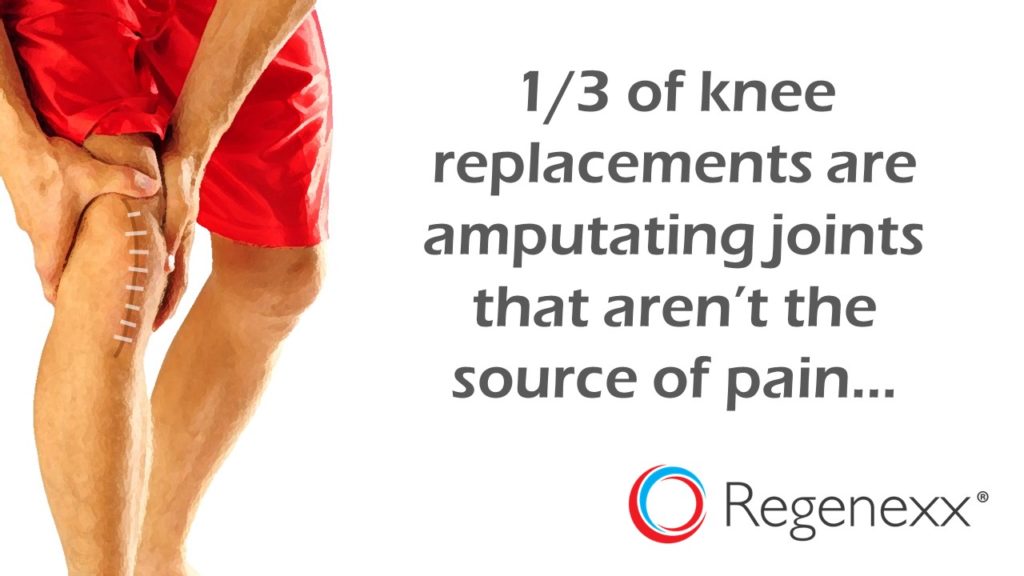Chronic Knee Replacement Pain: 1/3 of the Time Knee Replacement Surgery Removes a Knee Joint that Isn’t Painful?
Chronic knee replacement pain? We’ve seen patients for years who report knee arthritis, but who likely don’t have pain coming from their knee joint. Huh? You think if you have knee arthritis on an x-ray you have to have knee pain?
Not so much. In fact, the whole concept that even MRIs of the knee can predict which knees hurt and which have no pain has gone out the window these past few years. For example, a meniscus tear seen on MRI in middle aged and elderly patients is as likely in patients with knee pain versus those without pain. In addition, multiple things in the spine and around the knee can cause knee pain. For example, the upper low back nerves, the Sacroiliac joint, the muscles, and tendons can all cause knee pain. Why is this important? Well why would we want to put the patient through the risk of replacing the joint if the joint doesn’t hurt.
A recent study decided to use the ultimate test in patients with knee pain to see if they actually had painful knee joints. They injected numbing medicine inside the knee joint to see if the knee pain went away. The results? About 1/3 of patients didn’t get any relief! Since it’s common for a knee replacement decision to be made with just a cursory exam and an x-ray, if 1/3 of the patients with the most common form of arthritis don’t have pain coming from the joint, are we operating on these patients inappropriately? I know that I can count on one hand the number of times I have seen a patient get a numbing injection into the knee to ensure that the pain was coming from the knee joint.
The upshot? Be very careful before getting your knee joint amputated and an artificial joint put in, as your knee pain may not be coming from the arthritic joint. If it’s not knee joint pain, then it’s unlikely the knee replacement surgery will help. Is this why many patients continue to have knee pain even after a knee replacement?

NOTE: This blog post provides general information to help the reader better understand regenerative medicine, musculoskeletal health, and related subjects. All content provided in this blog, website, or any linked materials, including text, graphics, images, patient profiles, outcomes, and information, are not intended and should not be considered or used as a substitute for medical advice, diagnosis, or treatment. Please always consult with a professional and certified healthcare provider to discuss if a treatment is right for you.

